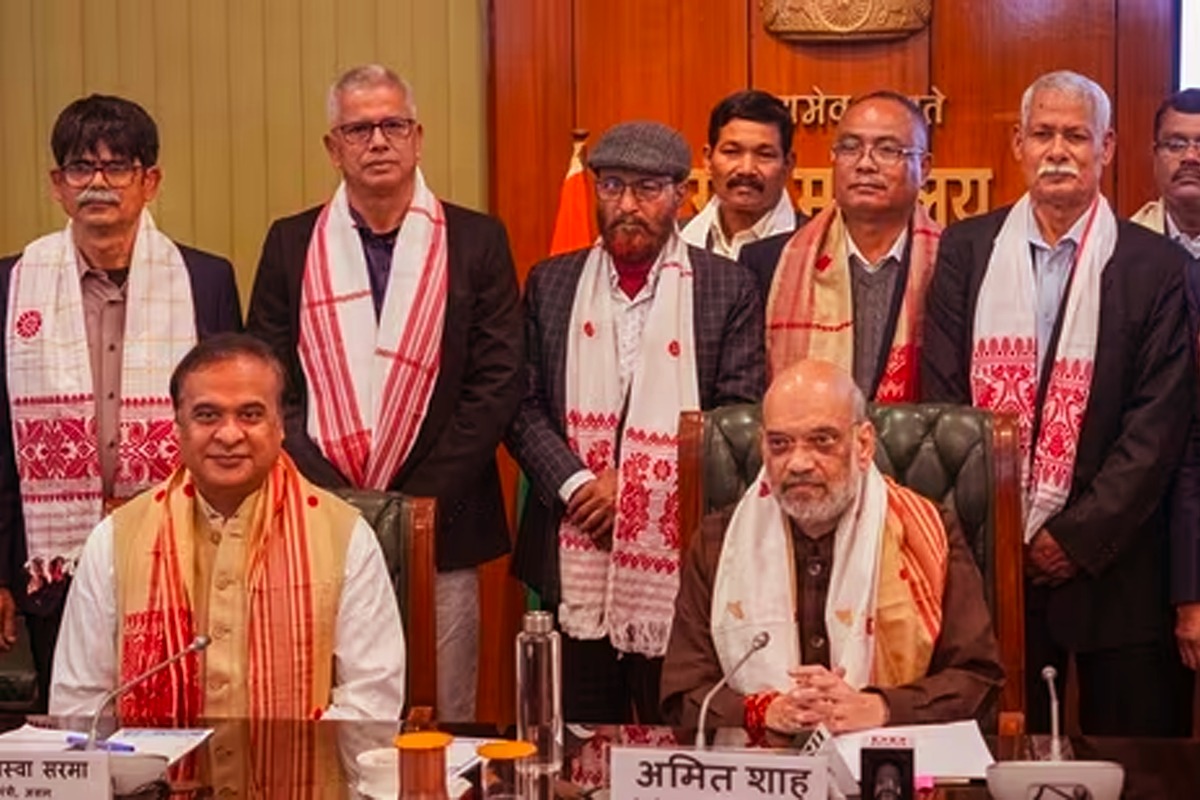The recent signing of a memorandum of settlement between the Union government, the Assam government, and the pro-talks faction of the United Liberation Front of Asom (ULFA) marks a significant milestone in bringing an end to the prolonged violent conflict in Assam. This accord not only holds the promise of quelling insurgency but also addresses deep-seated issues that have long plagued the region.
Crucially, the peace deal encompasses provisions for political, economic, and cultural safeguards aimed at securing the well-being and empowerment of indigenous communities in Assam. The commitment to socio-economic and cultural development is pivotal for fostering lasting peace and stability.
The central government has made substantial assurances to Assam, pledging support for various projects and grants worth several thousand crores. These financial commitments are geared towards fostering infrastructural development across multiple sectors, encompassing road transport and highways, railways, flood and soil erosion control, petroleum and natural gas exploration, wetland conservation, cottage industries, and the growth of Micro, Small, and Medium Enterprises (MSMEs).
The ambitious plans for road transport and highways involve enhancing connectivity within the state through the construction and improvement of roads and highways. The railway sector is set to receive support for projects such as the expansion of railway networks, the construction of new lines, and the improvement of existing infrastructure.
Assam’s challenges related to floods and soil erosion will be addressed through the implementation of comprehensive flood control measures and erosion control strategies. The agreement also directs attention to the petroleum and natural gas sectors, emphasising the exploration and extraction of resources in the state. Wetland development is another crucial aspect, focusing on the conservation and restoration of vital ecosystems in Assam.
The agreement also outlines plans for the development of cottage industries, aiming to support small-scale industries and promote local craftsmanship and traditional skills. Furthermore, there is a commitment to bolster MSMEs by providing financial assistance, training, and other resources to facilitate their growth in Assam.
A notable aspect of the ULFA’s demands is the pursuit of Scheduled Tribe status for certain communities. This move seeks to secure special rights and privileges, potentially altering the demographic and social landscape of Assam significantly. If the recommended six communities receive Scheduled Tribe status, it could result in nearly half of Assam’s population being classified as tribal.
The financial package accompanying the peace settlement is not just about economic growth; it plays a pivotal role in the rehabilitation of former ULFA members, contributing to the overall socio-economic transformation of the region. In the realm of citizenship concerns, the ULFA has rightly raised the issue of reviewing the citizenship list in Assam. This process is vital for addressing the challenge of illegal immigrants, ensuring the integrity of the citizenship system, and upholding the recognition of eligible individuals as citizens. The review serves as a crucial step in maintaining order and legality within the state.
The memorandum of settlement signifies a comprehensive approach towards resolving the conflict in Assam. It goes beyond mere cessation of hostilities, encompassing multifaceted strategies for development, rehabilitation, and cultural preservation. While the road ahead may still pose challenges, the commitment shown by all stakeholders is a beacon of hope for a harmonious and prosperous Assam. The accord must be embraced and executed with diligence, ensuring its transformative potential is realized for the benefit of all residents in the region.












